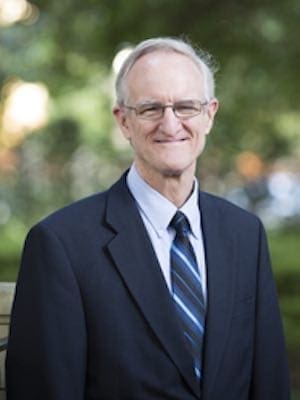When the seminary professor opened class with prayer requests, a student raised his hand and said, “Please remember me this weekend because I am going to be with some Catholics. I pray that they will get saved.” My reaction from across the room? “Ouch.”
Ever since Luther and other reformers broke from the medieval Catholic Church, Protestants and Catholics have excluded each other from the faith. The 400 plus years of icy relationships finally began to thaw when Catholics implemented change at Vatican II in the 1960s and announced that non-Catholics, while “separated brethren,” were Christian.
Baptists generally have conformed to the typical Protestant attitude that Catholics are not Christian. From the outset, Southern Baptist mission efforts focused extensively on Catholic- dominated countries and in the late 19th century even divided mission areas into two sections: Papal Fields and Pagan Fields.
Many Protestants feared the waves of immigration into America. Social gospelers thought the biggest problems of the growing cities were “rum, Romanism and rebellion.” And the “3 Rs” were interrelated. If unchecked, the pope would take over America and freedom would be trampled.
A case in point: When Richard Fuller resigned from Seventh Baptist Church in Baltimore in 1871, the church sought another prominent pastor as his successor. It selected W. T. Brantley Jr., pastor of influential Second Baptist Church in Atlanta. The Atlanta church demanded that Seventh withdraw the call because the growing Southern city of Atlanta needed his continued leadership.
Seventh rejected Second’s demand, however, and responded that its work was no less important than the work in the South. Strong ministerial leadership was indispensable in the city of Baltimore because the city was the center of Roman Catholicism in America. The “gross error” of Romanism had to be defeated.
Baptists continued to mistrust Catholics in the 20th century. Baptists strongly denounced the candidacy of Al Smith for President in 1928. Smith was Catholic and against Prohibition. Louie Newton, editor of Georgia’s Christian Index, said the destiny of the country hung in the balance.
An openness to Baptist-Catholic dialogue developed slowly in the 1960s. The ministry of Fred Laughon, pastor of First Baptist Church, Gainesville, Fla., is typical. When Pope Pius XII died in 1958, Laughon bluntly stated that the pope’s death “was of no greater importance to God than the death of any other Christian,” and he used the occasion to criticize the doctrine of purgatory.
In 1965, as the winds of Vatican II began to indicate openness in Catholic thought, Laughon welcomed positive developments but still concluded that unity would never “be found by having all Protestants kiss the pope’s ring.” By the end of the decade, however, Laughon took a leadership role in arguing for cooperative efforts with Catholics.
Working in a university setting perhaps helped. Laughon invited leaders of the Baptist Student Union and the Catholic Student Union to conduct an ecumenical dialogue at the church for students from the University of Florida. By 1970, the year of the first Baptist-Catholic dialogue sponsored by the Home Mission Board of the SBC, Laughon typified the progressive Baptist. While continuing to disagree with certain Catholic beliefs, he pushed for ecumenical understanding.
Conversations between Baptists and Catholics increased in ensuing years. Both groups sent observers to the Faith and Order Commission of the World Council of Churches. The Baptist World Alliance sponsored Baptist and Catholic theological dialogue in a series of meetings in the 1980s.
Today, Southern Baptists have abandoned the dialogue that characterized the Interfaith Witness Department (created in 1970) in order to emphasize evangelistic concerns. On the other hand, many Baptists continue to acknowledge differences but practice ecumenical cooperation. Some Baptists attend classes at Catholic seminaries and teach at Catholic universities. Most Baptist colleges have some professors that are Catholic.
Baptist-Catholic relations have come a long way—for most folks.
Doug Weaver is professor of Christianity and chair of the religion and philosophy division at Brewton-Parker College in Mt. Vernon, Ga.
Order Weaver’s books from Amazon!
The Healer-Prophet, William Marrion Branham
From Our Christian Heritage
Weaver is also the author of Every Town Needs a Downtown Church, A History of FBC, Gainesville, FL(SBHS, 2000)

